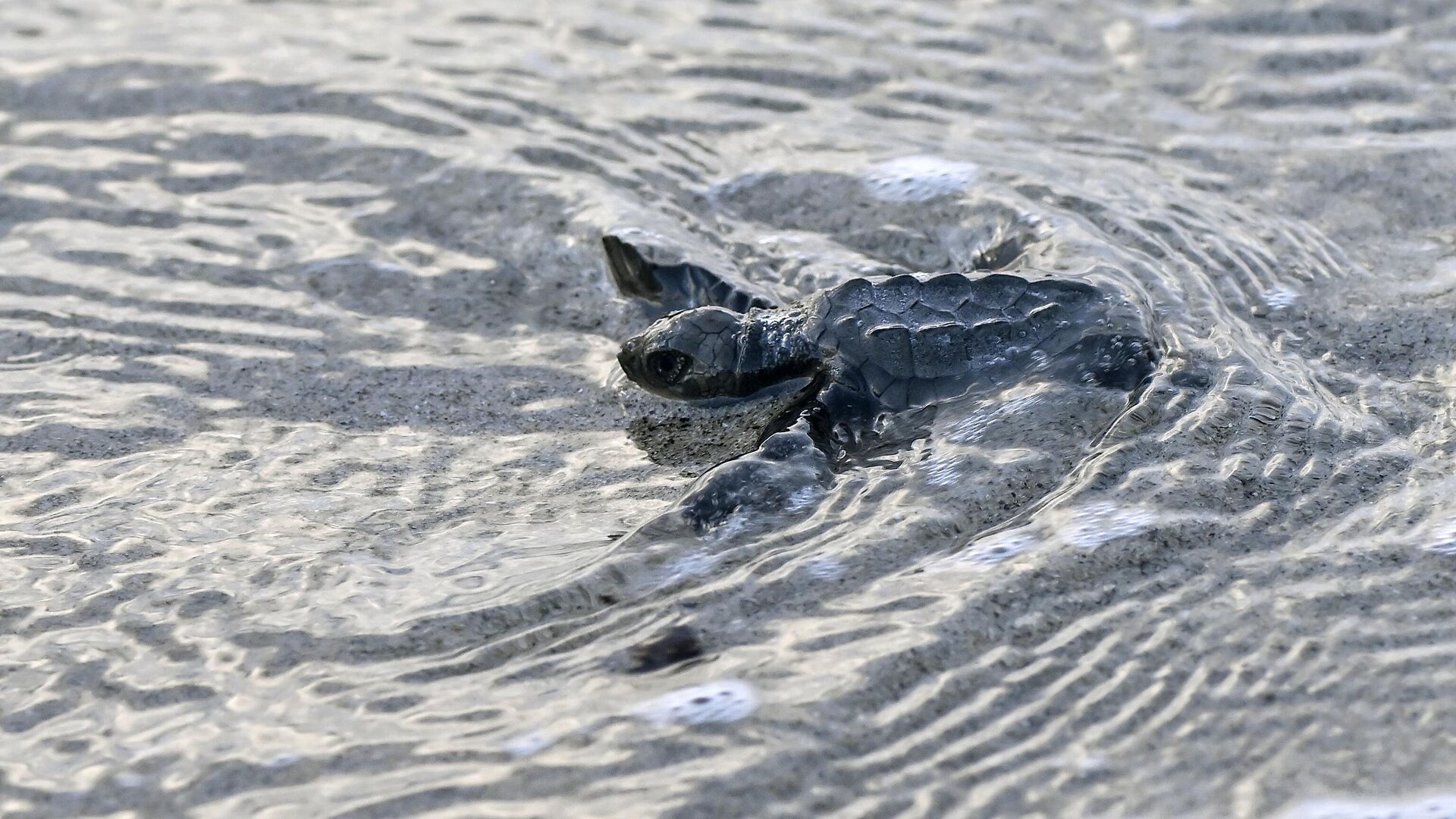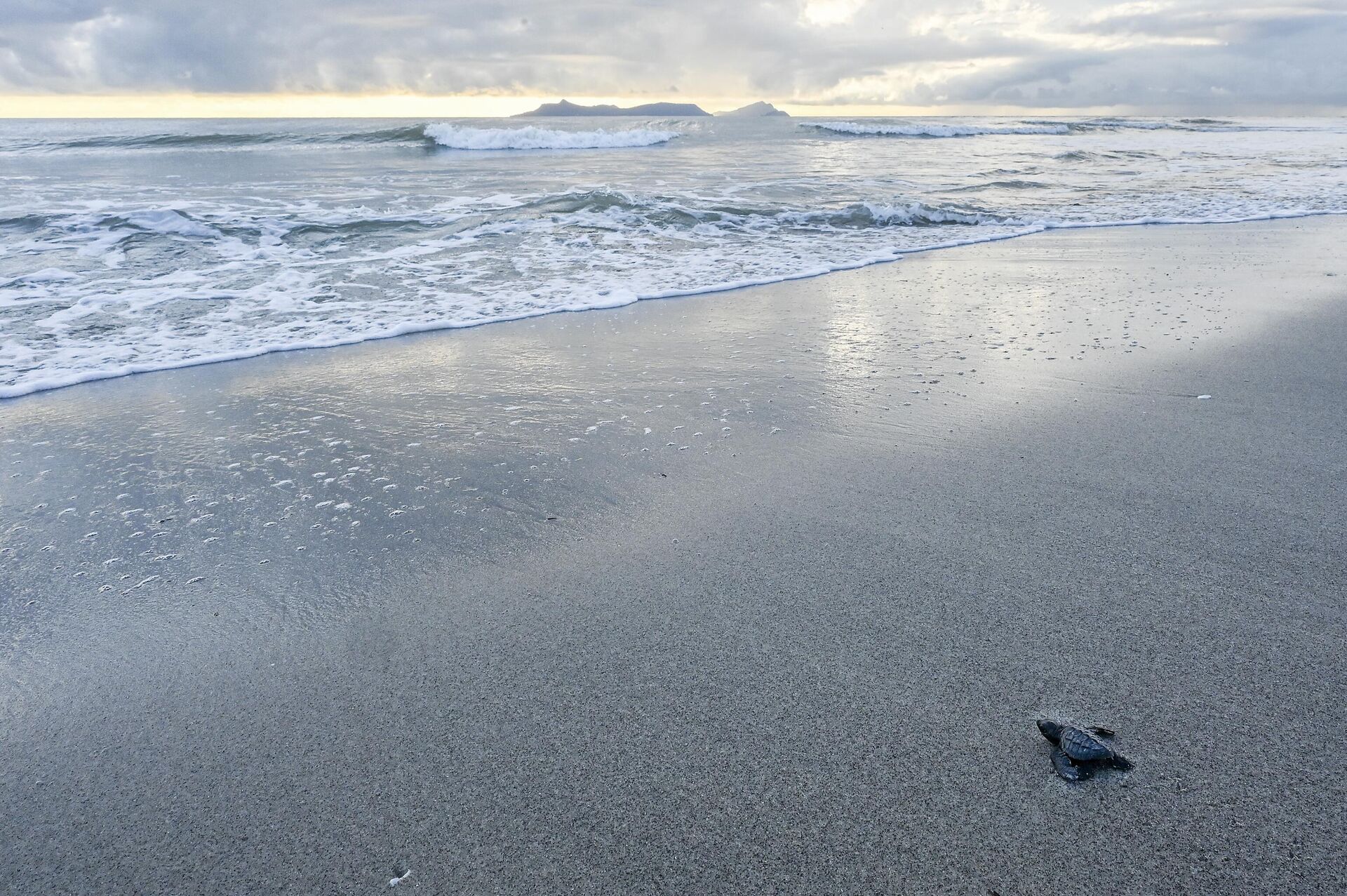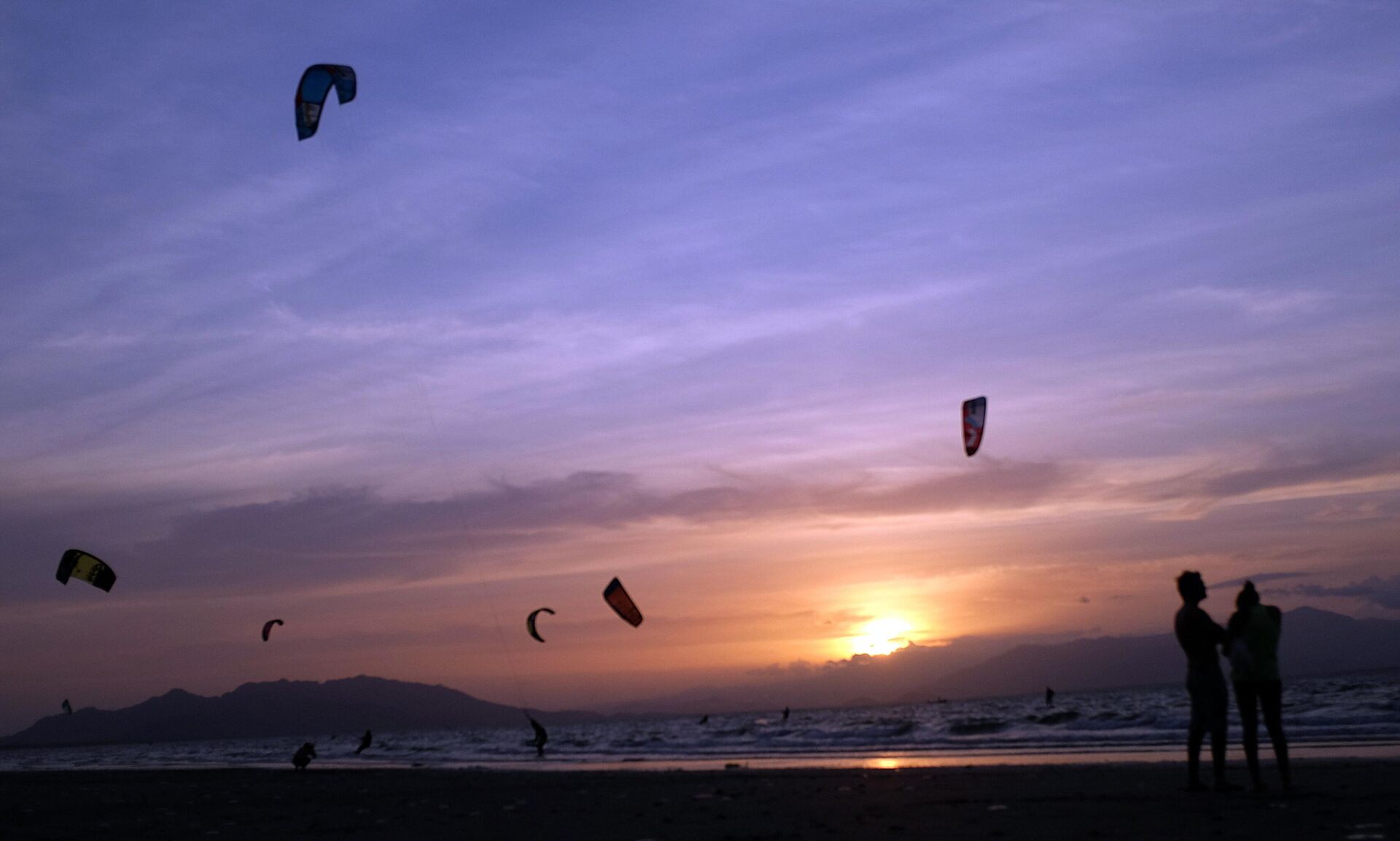https://sputnikglobe.com/20221118/sexual-superstitions-have-thrust-species-of-sea-turtle-to-brink-of-extinction-1104386957.html
Sexual Superstitions Have Thrust Species of Sea Turtle to Brink of Extinction
Sexual Superstitions Have Thrust Species of Sea Turtle to Brink of Extinction
Sputnik International
From powdered rhinoceros horn to sea cucumbers, a vast succession of animal species and plant life, often endangered, has been linked to medicine and... 18.11.2022, Sputnik International
2022-11-18T13:55+0000
2022-11-18T13:55+0000
2022-11-18T13:55+0000
turtle
panama
science & tech
extinction
https://cdn1.img.sputnikglobe.com/img/07e6/0b/12/1104385100_0:160:3073:1888_1920x0_80_0_0_aafff44e28728358e55084b55dbe77aa.jpg
The force of human superstition coupled with the desire to spice up one’s sex life has put sea turtles inhabiting a Panama peninsula on the brink of extinction.The Olive Ridley Turtle, whose numbers have been declining alarmingly, prefers the Punta Chame Cape, extending into the Pacific Ocean. Eggs of the species, marked as “vulnerable” on the Red List of the International Union for Conservation of Nature, are being illegally harvested. Convinced that the eggs possess powerful aphrodisiac qualities, poachers snatch them up straight from the beach to sell in town. One egg could go for anything from 75 cents to a dollar."Especially men think that by eating turtle eggs they will have more sexual pleasure. The eggs won't help you. They are not an aphrodisiac," a local conservationist linked with the Fundacion Tortuguias NGO was cited as saying by the media.The NGO has made it its mission to collect freshly-laid eggs, subsequently hatching them in sand at a specially-designed nursery between the months of July and February. Hours later, volunteers bring the tiny creatures to the beach and release them close to the water.According to experts, the young turtles, en route to the safety of the water, go through a process called "imprinting." This is what will allow them to find their way back there years later, to lay eggs on the very beach where they started out on their life journey.Conservationists cite a variety of threats faced by the turtles besides poachers, such as fishing, climate change, and human activity.An attempt to do something about the looming threat of extinction of the marine turtles features on the agenda of the Convention on International Trade in Endangered Species of Wild Fauna and Flora (CITES) .The wildlife summit is hosted by Panama City, not far from Punta Chame, with participants hoping to come up with ways to fight egg theft and trading.
panama
Sputnik International
feedback@sputniknews.com
+74956456601
MIA „Rossiya Segodnya“
2022
News
en_EN
Sputnik International
feedback@sputniknews.com
+74956456601
MIA „Rossiya Segodnya“
Sputnik International
feedback@sputniknews.com
+74956456601
MIA „Rossiya Segodnya“
force of human superstition, sea turtle species on brink of extinction, eggs illegally harvested, powerful aphrodisiac qualities, why turtle eggs are aphrodisiac, are turtle eggs aphrodisiac,
force of human superstition, sea turtle species on brink of extinction, eggs illegally harvested, powerful aphrodisiac qualities, why turtle eggs are aphrodisiac, are turtle eggs aphrodisiac,
Sexual Superstitions Have Thrust Species of Sea Turtle to Brink of Extinction
From powdered rhinoceros horn to sea cucumbers, a vast succession of animal species and plant life, often endangered, has been linked to medicine and aphrodisiacs, with superstition and greed threatening and undermining conservation efforts.
The force of human
superstition coupled with the desire to spice up one’s sex life has put sea turtles inhabiting a Panama peninsula on the brink of extinction.
The Olive Ridley Turtle, whose numbers have been declining alarmingly, prefers the Punta Chame Cape, extending into the Pacific Ocean. Eggs of the species, marked as “vulnerable” on the Red List of the International Union for Conservation of Nature, are being illegally harvested. Convinced that the eggs possess powerful
aphrodisiac qualities, poachers snatch them up straight from the beach to sell in town. One egg could go for anything from 75 cents to a dollar.
"Especially men think that by eating turtle eggs they will have more sexual pleasure. The eggs won't help you. They are not an aphrodisiac," a local conservationist linked with the Fundacion Tortuguias NGO was cited as saying by the media.
The NGO has made it its mission to collect freshly-laid eggs, subsequently hatching them in sand at a specially-designed nursery between the months of July and February. Hours later, volunteers bring the tiny creatures to the beach and release them close to the water.
According to experts, the young turtles, en route to the safety of the water, go through a process called "imprinting." This is what will allow them to find their way back there years later, to lay eggs on the very beach where they started out on their life journey.
Conservationists cite a variety of threats faced by the turtles besides poachers, such as fishing, climate change, and human activity.
An attempt to do something about the looming threat of extinction of the marine turtles features on the agenda of the Convention on International Trade in Endangered Species of Wild Fauna and Flora (CITES) .
The wildlife summit is hosted by Panama City, not far from Punta Chame, with participants hoping to come up with ways to fight egg theft and trading.



